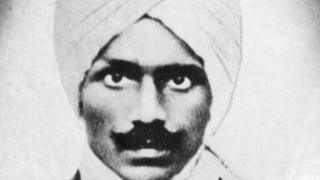- UID
- 20
- Online time
- Hours
- Posts
- Reg time
- 24-8-2017
- Last login
- 1-1-1970
|

▼ In March 1949, the government in India's southern state of Tamil Nadu acquired the work of one of India's greatest poets. It was the first time in the world that the state had taken over the copyright of a writer and put his writings in the public domain.
Subramania Bharati, who wrote in the Tamil language, was a literary colossus. Influenced by the Romantic poets, the radical poet used the pen-name "Shelley-dasan", meaning disciple of Shelly. Much later, inspired by Walt Whitman, he wrote prose poems, possibly for the first time in an Indian language. He was also interested in haiku, the traditional Japanese poetry form.
Bharati was a maverick and remarkably progressive. He was not shy about open demonstration of affection: some of his love poems are addressed to his wife; and a grainy old picture shows the poet with his hand over her shoulder, very unusual for his time. He briefly turned atheist, and his nationalistic writings were banned for sedition by British rulers.
"He was the central figure in the making of a modern Tamil culture," says historian AR Venkatachalapathy, author of Who Owns That Song, a riveting new book on the battle for Bharati's copyright.
Much like Scottish poet Robert Burns who died at 37 leaving behind a small debt, Bharati died in poverty in 1921, aged 39, leaving behind his unlettered wife Chellamma and two daughters. By then, the radical poet had written than 700 pages of poetry - Whitman-inspired prose poems; blank verses; and couplets - and more than 600 pages of stories.
He was also fairly prolific in his stints as a journalist, writing more than 1,000 pages of articles and editorials. (▪ ▪ ▪)
► Read the full note here: Source |
|